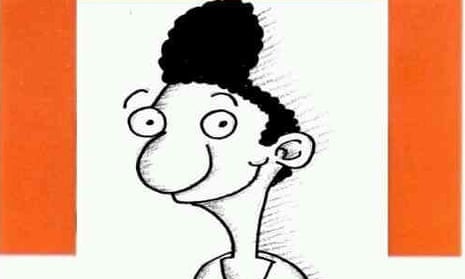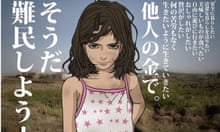An Iranian man currently detained in the Manus Island detention centre has won an international cartooning award for courage.
Ali, who goes by the pen name Mr Eaten Fish, has been detained in Australia’s offshore immigration processing centre for more than three years. The 25-year-old suffers from obsessive compulsive disorder and has been assaulted while in the centre.
In giving Ali the award for courage in editorial cartooning, the Cartoonist Rights Network International (CRNI) said his work “pushes through the veil of secrecy and silence and layers of fences in a way that only a talented artist speaking from the inside can”.
“Eaten Fish has been able to keep up a stream of cartoons documenting the unspeakable abuses and excesses of the guards and administrators of the camp,” said the organisation.
“For this he has been the subject of beatings, deprivation of food and, even worse, degrading treatment by the guards. Australia has made publication of negative information about the camp punishable by two years in prison.
“Eaten Fish is one of those whose work as a cartoonist brings to light the horrors that are happening around him. CRNI believes that his body of work will be recognised as some of the most important in documenting and communicating the human rights abuses and excruciating agony of daily life in this notorious and illegal prison camp.”
CRNI is an international human rights organisation with a network of more than 600 illustrators. It seeks to support and defend cartoonists facing censorship, intimidation, imprisonment, violence and death.
It campaigns for protection and freedom of cartoonists, and its annual award seeks to honour an individual for expressing their freedom of speech rights.
“We do not award a cartoon,” the organisation said. “We make no comment on the quality or intent of a specific cartoon. We award a cartoonist under threat or attack.”
Medical experts and advocates have pushed for Ali to be brought to Australia for medical care of his mental and physical illnesses, including post-traumatic stress disorder, OCD and panic attacks.
More than 30 Australian cartoonists, including the Guardian’s First Dog on the Moon and David Squires, as well as David Rowe, Jon Kudelka, David Pope, Fiona Katauskas and Cathy Wilcox, drew cartoons in support of Ali.
The cartoonist’s Australia-based advocate, Janet Galbraith, who will accept Ali’s award on his behalf, has previously told Guardian Australia she fears for his life.
“He arrived in Manus as a young man who was already quite a vulnerable person and I remember being told by some of the workers there that this guy just doesn’t fit here at all, it’s so dangerous for him,” Galbraith said.
“That has played out. He has severe OCD, he will wash his clothes or body for hours and still feel like it’s disgusting. He will wash himself until he’s bleeding.”
She said Ali has frequently been targeted by some guards and occasionally by other detainees.
On Monday the Department of Immigration and Border Protection said in a statement: “The Department strongly denies the claims made by Cartoonist Rights Network International that transferees are subject to ‘beatings, deprivation of food and, even worse, degrading treatment by the guards’.
“The department takes allegations of inappropriate conduct very seriously. Any allegations of inappropriate behaviour by service provider or departmental staff at regional processing centres are immediately reported to the department for investigation. The department currently has no evidence that any of these allegations are true.
“As previously stated to the Guardian, transferees receive appropriate medical care, broadly comparable with health services available within the Australian community.”
The DIBP added: “The statement ‘Australia has made publication of negative information about the camp punishable by two years in prison’ is also incorrect. The ABF [Australian Border Force] act does not prevent individuals from speaking out about matters of public interest. The act protects sensitive operational information from unauthorised disclosure; it does not restrict anyone’s ability to raise genuine concerns about conditions should they wish to do so through appropriate channels.”
The Department of Immigration and Border Protection has defended the care and treatment of Ali in the Manus centre.








